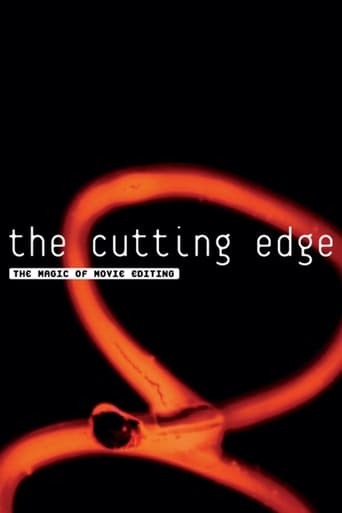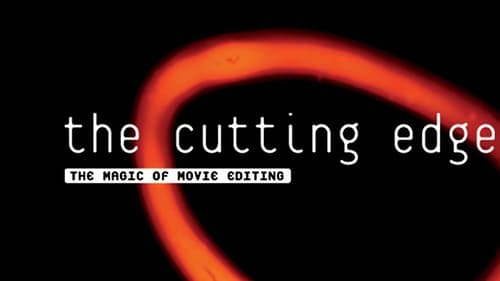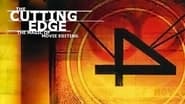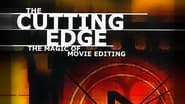james higgins
This is a must see documentary for any serious film buff. For all you folks out there that dismiss older films, you may be surprised by your favorite directors such as Quentin Tarantino, Martin Scorsese, Steven Spielberg and James Cameron praising the magnificence of silent films and many classics. Without these classics and the skill involved in making them, today's movies wouldn't be what they are. A brilliant and informative documentary. It very thoroughly explores a movie art form that is often not understood and certainly unappreciated. The editing of a film is very instrumental in its success. However, not many people appreciate it.
Robert J. Maxwell
This is fascinating stuff. There's room enough in editing for both the technician and the poet.The documentary is narrated by Kathy Bates and, as the list of participants reveals, has a couple of dozen commentators. Not all of them are household names, of course, because who knows the names of any editors? Interesting that the craft started with women seated at their desks and cutting and gluing the old-fashioned way. It was thought proper to put a film through an assembly line of women because, well, that's a woman's job, isn't it? Cutting, snipping, crocheting, macramé, sewing -- weaving away forever like Penelope.And it STILL seems to be at least one of the occupations where the men haven't moved in and taken over entirely. (Another is superstar modeling, where the beautiful woman is paid about ten times what the beautiful man is paid.) One might think of the editor as some pale ectomorph buried in his cellar, gawking into a moviola, but they're actually pretty human and proud of what they do. The closest any of the editors come to that covert stereotype is probably Walter Murch. Here he is, a thin figure in a black Beatnik pullover, neatly trimmed beard, and proper eyeglasses, with never a wry comment or an expansive movement. He knows it too. He compares editors to precision jewelers. Yet he knows exactly what he's doing and shows us, point by point, how it's done. PS: It no longer involves being bent over a table and examining frames of movie film.A nice informative job by director Wendy Apple -- and editors Daniel Loeventhal and Tim Tobin.
Woodyanders
This excellent, engrossing and extremely illuminating documentary covers the evolution of the crucial craft of film editing from the silent era to the modern age. Editors initially started out as key, but anonymous contributors to motion pictures who in the 40's and 50's had to staunchly adhere to certain strict guidelines. D.W. Griffith played a substantial part in developing editing as a significant component of movies. The Russian filmmakers of the 20's and the French New Wave directors of the 50's further revolutionized editing by willfully breaking certain established rules. Many different aspects of film editing are extensively covered in fascinating detail: montage, juxtaposition, jump cuts, creating a rhythm, the challenge of cutting chase sequences, the importance of sound, the powerful fusion of sound and image, fragmenting time and space, the difficulty of cutting sex scenes, and the contemporary style of rapid-fire fast cutting. Moreover, we learn that the editor is the most objective person to work on a movie, plays a major role in telling the story, and often works very closely with the director in the post-production process. Such famous directors as Martin Scorsese, Steven Spielberg, Quentin Tarantino, and James Cameron discus the necessity of editors in the whole film-making process. Editors Sally Menke (who was specifically hired by Tarantino to cut "Reservoir Dogs" because he thought a female editor would be more nurturing), Dede Allen, Mark Goldblatt, Zach Staenberg, Craig McKay, Michael Tronick, Donn Cambenn, Alan Heim, and especially Walter Murch all relate great stories about editing various pictures. Kevin Tent in particular has a choice anecdote about how he paid director Alexander Payne 75 dollars to cut a specific sequence in "Election" a certain way that wound up being used in the finished feature. George Lucas hits the nail right on the head when he describes editing as "visual poetry." Kathy Bates provides the perfectly sober and respectful narration. Essential viewing.
Julio Luzardo
I'm a film director/editor from Colombia with more than 45 years in the business and this film is absolutely the best essay on film editing that I've had the good luck of seeing. The examples are great, the explanations on the "unseen" or "hidden art" of editing are perfect, the pacing is just right, etc., etc. The only thing I felt was that it was too short, but then I'm biased on the subject. This should be a MUST SEE FILM for everybody starting out in the business (and not just those who want to be editors).This is a solid "10" for me and I can't understand how anybody would consider it less, except for those mediocre joes who just can't cut it...






